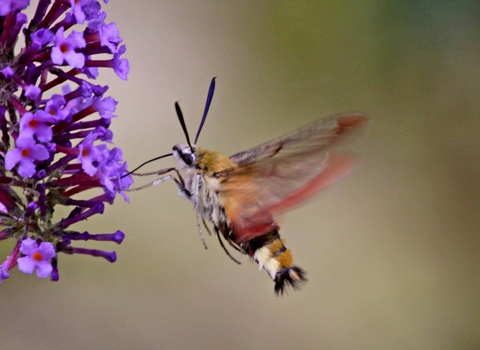
©Margaret Holland

©Derek Moore
Broad-bordered bee hawk-moth caterpillar © Tom Hibbert
Broad-bordered bee hawk-moth
The broad-bordered bee hawk-moth does, indeed, look like a bee! A scarce moth, mainly of Central and Southern England, it feeds on the wing and can be seen during spring and summer.
